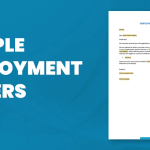The Role of Human Resources (HR) in Helping Companies Maintain a Competitive Edge in a Global Market
Human Resources (HR) is no doubt one of the most important functional areas in every business and plays a very vital role in ensuring the company’s competitiveness in the global market. The Human Resources field has rapidly evolved to ensure the needs of today’s fast-changing, fast-paced global market are met, and has developed into a more strategic, advisory role that helps to enhance organization’s competitive advantage and future success.
Human Resources (HR) play a crucial role in helping companies remain competitive in a global market. The HR department of every organization has the responsibility of managing the organization’s most valuable asset, that is the employees. Human Resources professionals are often charged with developing and implementing both training and professional development programs to ensure the employees continue to help companies maintain competitive advantage.
Why You Should Tailor Job Descriptions to Roles and Levels
Here are 6 detailed ways in which HR contributes to a company’s competitiveness in the global market:
- Talent Acquisition and Recruitment: Human Resources help companies to attract and hire the best talent for their organization. In the current global market where there is high competition for skilled professionals, HR professionals play very vital role in ensuring the company secures top talent by using their expertise in recruitment strategies, employer branding, and candidate assessment for the company. HR also help to ensure employee retention through effective onboarding, training and development programs, and competitive compensation and benefits packages.
- Talent Development and Workforce Planning: Human Resources play very vital role in preparing companies and their employees for the global market by helping in the design and implementation of trainings and talent development programs to enhance employees’ skills, capabilities, and knowledge. This includes providing employees with training opportunities, leadership development programs, and career advancement pathways. Through these programs, employees are well equipped with cross-cultural communication skills, global mindsets, and other knowledge necessary to drive innovation and competitiveness in the global market, and by so, the companies build a skilled workforce capable of adapting to changing market demands. Additionally, human resources engage in strategic succession / workforce planning by analyzing business goals, forecasting future workforce needs, and identifying skill gaps, then ensuring that key positions are filled with qualified internal candidates, thus reducing the risk of talent gaps and disruptions.
- Cultural Diversity and Inclusion: Understanding and embracing cultural diversity and inclusion is very vital for any business that seeks to successfully compete and remain relevant in the global market. These two factors are increasingly recognized as important drivers of innovation, creativity, and adaptability. HR plays a vital role in implementing policies and practices that promote diversity and inclusion in the work environment. They achieve this by implementing diversity initiatives, ensuring fair hiring practices, providing diversity training, and fostering a culture that embraces differences. By leveraging diverse perspectives and experiences and allowing employees of different backgrounds to contribute their unique perspectives, companies can gain a competitive edge in understanding and serving global customers.
- Employee Engagement and Retention: Engaged and satisfied employees are more likely to remain committed to the organization and contribute their best efforts. HR promotes a positive work culture, healthy work environment, and work-life balance. Human Resources develops strategies that foster employee retention, including competitive compensation and benefits packages, advancement opportunities, and enhanced work environments. By prioritizing a culture of engagement and retention, HR helps enhance productivity, reduce turnover, retain their best talent, and maintain competitive advantage in the global market.
- Performance Management and Rewarding Employees: Human Resources create and implement effective performance management systems that align individual and team goals with the overall company goals. HR helps in setting clear performance expectations, conducting regular performance evaluations and feedback, as well as recognizing high performance in the organization. HR also plays a role in designing programs (reward systems) that motivate and retain top performers in the organization, including compensation, bonuses, and recognition programs. Performance management and reward systems help to contribute to company’s competitiveness as well as help companies to cultivate a culture of high performance.
- Global Workforce Regulations and Compliance: Companies that operate in a global market must be able to navigate through the legal and regulatory framework of the countries. Human Resources ensure compliance with labor laws, employment regulations, immigration regulations and ethical standards across different jurisdictions. HR professionals stay updated with laws and regulations, facilitating work visa processes, mitigating legal risks and maintain a positive employer reputation.
Top 20 Questions to Ask Your Interviewer in a Job Interview
Summary
As a result of the strategic focus of Human Resources on talent acquisition, trainings and talent development, diversity and inclusion, employee engagement, performance management, and compliance, companies are able to build strong competitive advantage in the global market by attracting, retaining, and developing top talents while fostering an inclusive and high-performing work culture.



